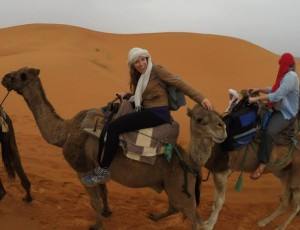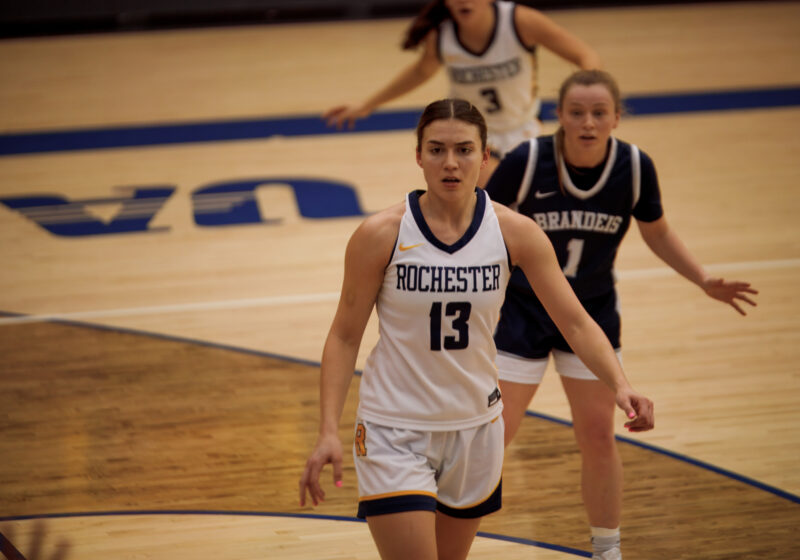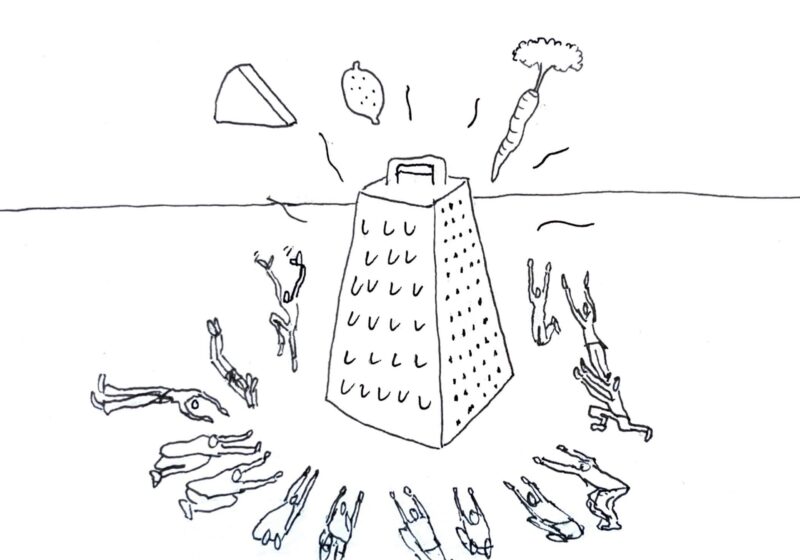Morocco is a beautiful country filled with many different cultures, religions and languages. It sits in the Maghreb region of North Africa and is enchanted by mystery and tradition.
With culture from its bustling souqs (open-air markets) and its energizing atmosphere from its mountains and sea, it is evident that Morocco is an important and interesting place to visit. Many ethnicities and cultures have entered and left Morocco, leaving it with all sorts of arts, literature, cuisine and architecture to fill up the country.
In senior Lauren Connaughton’s Fall 2014 semester, she had the amazing opportunity to study abroad in Morocco and experience the plethora of cultures that exists there.
“I chose to study abroad on a whim last year. I submitted the proposal weeks late and wasn’t sure if anything would work out…I hadn’t had much interest in going the fall of senior year, but decided that I would regret not going,” she said.
In the end, Connaughton went to Morocco through the Institute for the International Education of Students’ (IES Abroad) Morocco program and is very happy she chose it.
IES Abroad provides classes or internships through the Université Mohammed V, located in Rabat, as well as housing–either homestay or dorm residence–and field trips, with the goal of giving its students the most authentic study abroad experience. Through the IES Abroad program, Connaughton had the opportunity to live at a host family’s house and be completely immersed in Moroccan culture. She had flexibility in choosing her class schedule because she had no required classes to take for her music major. Connaughton took four classes while abroad, including an Arabic class, a class on Islam, a North African literature class and a gender studies class with a specific focus on Morocco.
Noting that her favorite class was the class on Islam, which was taught in French, Connaughton explained that she also found it to be the most interesting.
A regular week of hers included classes that ran from Monday to Thursday 8 a.m. to 6p.m. and 8a.m. to 10a.m. on Friday. “I was only in class until 6 on Thursdays, though. Every other day I was out by noon,” she said.
All of her professors and the administrators in the program were Moroccan, which allowed her to learn directly from those native to the area and even allowed her to practice her French. She got to meet new people, both Moroccan and American.
When Connaughton wasn’t taking classes or spending time with her host family, she was traveling both inside Morocco and around Europe.
“The program took us on many field trips and many bigger trips as well….The coolest [trip] was a three day trip to the Sahara [that] included 10 hours of driving each way, stopping in small traditional villages, live Moroccan music, amazing scenery, unforgettable camel rides through the dunes and an amazing overnight in a small oasis a few kilometers into the desert,” she said.
However, Connaughton’s favorite city was Fes, the traditional capital of Morocco, followed by Asila.
Asila is a beach town in the north near the strait of Gilbraltar.
“Asila was the most beautiful beach I have ever been to,” she reminsced.
Connaughton also had the opportunity to travel throughout Europe during her studies in Morocco. She visited Portugal, England, Italy, Belgium, France and the Netherlands.
“I went a week early and did a backpack trip through Eastern Europe, from Budapest, to Austria, to Hungary, to Spain and to the Czech Republic.” Overall, her favorites cities were Prague and Amsterdam.
Living with a host family allowed Connaughton to learn a great deal about Moroccan culture.
Whether it was with her own host family or one of the other Moroccan families that she met along the way, she said that “getting to know the Moroccan families was a highlight of [her] trip” and that “they were extremely hospitable and friendly…I think I learned the most about Morocco from them.”
Being immersed in the culture allowed her to see Morocco through the eyes of people who aren’t tourists.
She noted some traditional activities that she took part in.
“Every Friday is couscous day,” she said, “Fridays are the religious day in Islam, and they eat couscous. There are a few different versions [prepared] , but my favorite was topped with caramelized onions, raisins, almonds and vegetables. They put some kind of meat in it too. So scrumptious.”
She was also able to see and experience some of the possible flaws that the country has.
She claimed that she would love to go back and visit Morocco, but not live there because “there [are] a lot of problems for women there in terms of sexual harassment and gender equality.”
Connaughton also felt that living with a host family made her lose a little bit of independence.
“Here [on campus] you are responsible for just yourself. You feed yourself. You don’t have to report to anybody. [In Morocco], you had to report to the host family about your schedule. ‘I am going to be home for dinner, or I am not going to be home for dinner’ etc. You had to plan ahead. So it was almost like being in high school again, dealing with your parents.”
In addition, she also found that the Moroccan culture is a lot more conservative and sensitive about things that Americans are not so sensitive about. This includes drinking and other similar actions because of religious restrictions.
Overall, Connaughton had an amazing experience being immersed into a different culture, taking non-UR classes and traveling around Europe.
Connaughton advises everyone to “definitely study abroad for at least three months or one semester.”
Greenwald is a member of
the class of 2017.



